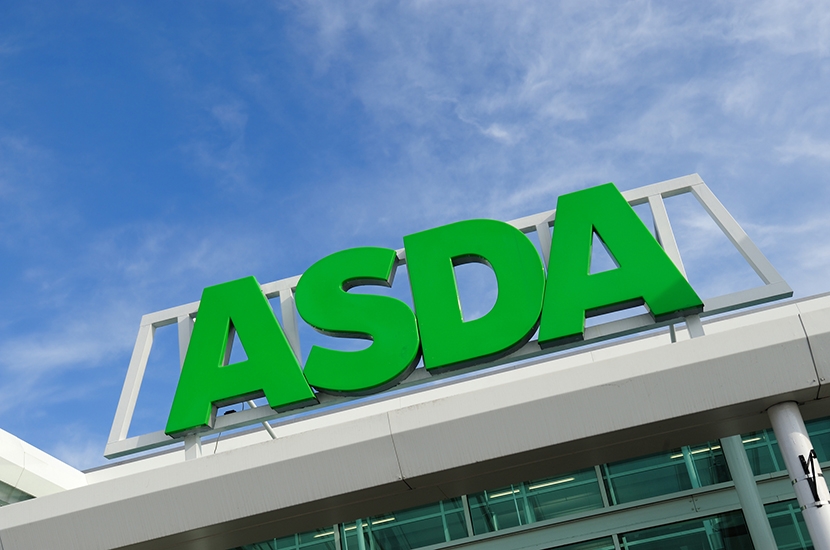What a triumph of entrepreneurial empire-building — if that’s still an acceptable phrase — is the £6.8 billion acquisition of the Asda supermarket chain by Blackburn-born self-made billionaires Mohsin and Zuber Issa. Sons of Gujarati immigrants, these brothers have advanced from a single petrol station in Bury to a chain of almost 6,000 in ten countries with convenience stores and coffee shops attached. Now their company EG Group has brought Asda back into British ownership after two decades as part of Walmart, the big-box monster of American shopping.
The pair’s success has been built on boosting the profitability of fuel retailing, in an era when big oil companies were pulling out of that market, by adding more consumer choices, including the (to me rather forlorn) concept of the UK’s first drive-through Starbucks outlets. They are also philanthropists who keep a relatively modest personal profile despite negative media attention for building multiple mansions in Blackburn and a neighbour-annoying mega-basement in Knightsbridge.
Even Rishi Sunak has congratulated them on the Asda deal and I’ll be fascinated to see what they do to brighten this dull dog of the UK supermarket scene — which was once itself a fine example of northern entrepreneurship from humble beginnings. It was another pair of brothers, the Pontefract butchers Peter and Fred Asquith, who joined forces with a family dairy business in Leeds in the 1960s to create prototype Asda discount superstores with petrol stations attached. So the Issas’ deal offers a pleasing echo of the past as well as promise for the future — and a moment of cheer in an otherwise dismal corporate season.
Not so dismal
Just how gloomy prospects really are, and how depressed we ought to feel about them, was a topic this week for Bank of England chief economist Andy Haldane, who always strikes me as a shrewd real-world observer rather than a central banking theoretician — though having once sat through a mind-bending lecture by him on ‘macroprudential regulation’, I know he can do the technical stuff too. His ‘Ashington’ lecture last year on the economics of left-behind post-industrial towns highlighted the need for levelling up well before Downing Street jumped on that bandwagon. His latest, titled ‘Avoiding economic anxiety’ but likely to become known as the Chicken Licken speech, is a refreshing counterblast to prevailing doomsterism.
In summary, it says the UK economy is bouncing back faster than expected, so that the Bank now expects GDP to have climbed back from its 20 per cent second-quarter crash to no worse than ‘around 3-4 per cent below its pre-Covid level by the end of the third quarter’. But fears of rising infections leading to tighter lockdowns, increasing job losses and a botched Brexit are being exaggerated by households and businesses, creating ‘excess caution’ which threatens to restrain further recovery. ‘Now is not the time,’ says Haldane, ‘for the economics of Chicken Licken’ — the folk-tale character who declared the sky was falling in after being hit on the head by an acorn.
Is he right to nudge us towards optimism, or — as the Telegraph’s Ben Marlow put it — is he ‘living in a land of fairy tales’ and latching on to anything that supports his previous predictions of a V-shaped recovery? This crisis is clearly no flying acorn. But the news can be read either way: on one hand, Cineworld’s closure threatens 5,500 UK jobs; on the other, Jaguar Land Rover reports a leap in sales to China and a return to two-shift working on production lines that were halted in March. ‘It’s tempting to say that Haldane should get out more,’ says Marlow scathingly, but safer to suggest the Bank should ‘lock him in a room’ with his spreadsheets. As a natural optimist and far-from-London real-world observer myself, I disagree. Haldane is a rare economist who actually does get out a lot and analyses what he sees around Britain for himself. The more we hear from him the better.
Postal heroes
Local post office staff have been pandemic heroes, maintaining chains of human communication that are at least as important as anything provided by the internet and the smartphone. After a decade in which the stamped letter or inky postcard was dismissed by the digital generation as ‘snail mail’, the daily delivery has become a psychological lifeline again, even when much of it is junk, while efficient parcel services have facilitated a boom in online shopping. So it’s good to see the release from misery of large numbers of sub-postmasters and postmistresses who had been wrongly accused of fraud or theft as a result of a dodgy computer system whose faults senior executives refused for years to acknowledge.
Having already paid out £58 million in damages, the Post Office has now said that it will not oppose appeals against convictions in 44 criminal cases that are almost certain to be overturned. The BBC deserves some credit for helping expose this scandal of top-management insensitivity to small cogs in an ill-designed machine who also happened to be hardworking pillars of their local communities. All the more reason for us to greet them and thank them today.
A fair wind
Offshore wind will be powering every home in the country in ten years’ time, says the Prime Minister — and you may think that’s just Boris phooey designed to distract from current government failings. We’ll still need new nuclear whatever it costs, but the fact is that a target of 40 gigawatts of offshore wind capacity by 2030 is reachable and — with a stiff breeze — could provide up to two-thirds of all UK power demand on a winter’s day.
Few people still scorn wind turbines as a blight of green tokenism. Meanwhile the breezy North Sea, after half a century’s oil and gas production, remains, as one ex-minister put it to me this week: ‘The energy gift that keeps on giving.’







Comments